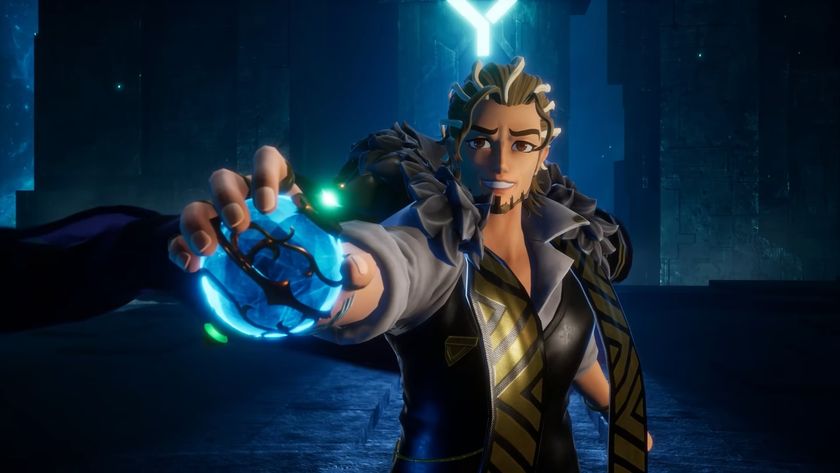The austere masonry of Ico's castle conceals a pulsing heartbeat
Given its function as both a prison and site of ritual child sacrifice, Ico’s castle is disarmingly picturesque. The setting achieves balance through contrasts; dank, moss-speckled chambers open out on sunlight-warmed courtyards. Its atmosphere teeters between comforting and oppressive, the familiar and the otherworldly. Still it remains one of the most coherent game spaces ever created: providing glimpses of areas already explored and others yet to be visited, the castle’s convincingly pragmatic architecture sets the imagination racing at what long-dead occupants may have used each area for. As game designers increasingly lean upon the narrative crutch of audio logs to deliver historical context, it’s refreshing to explore a world in which ghosts are conjured with the most subtle design touches.
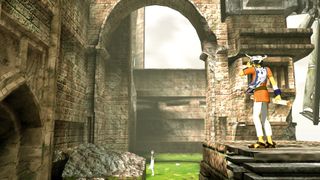
“Things that have a history just by themselves tell us so much about them from the damage and tarnish due to deterioration,” the castle’s real-world architect, Team Ico creative director Fumito Ueda, tells us. “What’s appealing about that is that it evokes imagination, I think. It makes you wonder what kind of history it’s got. “I didn’t want the player to think that these were levels created by designers. I wanted them to believe that beyond their screen was a castle that had existed for a very, very long time, which was built by someone they didn’t know.”
It’s easy to fall under Ueda’s spell. Here stands a crumbling ruin whose macabre purpose haunts its empty chambers, and yet the place evokes childhood trips to real castles as you clamber through disintegrating merlons and leap gaps in gangways long since reclaimed by the sea.“We removed unnecessary objects and elements as much as possible so that everything would fit in a small space,” Ueda continues. “We hated these objects that were very unnaturally placed in levels just for the sake of level design, so we removed them as well. For example, in Ico we don’t have invisible walls that would normally prevent the player character from falling off. And when we really needed those walls, we made them look very convincing.”
Though it may come as a surprise, given the obvious care invested in the castle’s realisation, Ueda admits that he and his team didn’t go out and scout real locations. “Everything in the game was a product of our imagination,” he says. He credits the work of artists such as French etcher Gérard Trignac, who trained as an architect, as a particularly valuable source of inspiration.
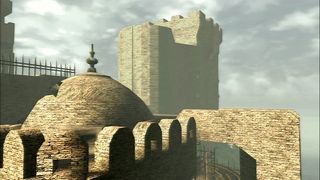
Ico’s minimalist audio design allows environmental noises to create their own emotional cues: the sea battering jagged cliffs far below; the echoing footsteps of a young boy dwarfed by high vaulted ceilings; the complaining creeks of clockwork mechanisms activated after years of dormancy; the taunting cry of birds so easily able to escape the castle’s confines. So powerful is this mix of visual and aural stimuli that it manages to trigger sense memories as well. Move from the dim interiors to the gold-saturated exterior and you’ll swear you can feel the sunlight hit your skin.
Less generous observers might consider the twin gatehouses – which stand at the end of long, high bridges at each side of the castle – nothing more than a thrifty reuse of assets. But whatever your take on having to navigate two near-identical spaces, their symmetry powerfully reinforces the believability of the castle. “The castle was constructed so that hopefully the player would always be aware of its entire structure while playing the game,” Ueda explains. “The architecture in Ico is the culmination of consistency in level and game design, and a pursuit of a perfect colour balance as well as a perfect amount of onscreen information.”
The disintegrating walls and design steeped in earthy naturalism belie one developer’s quest to realise perfection. The absence of mood-manipulating music or any kind of HUD further echo this approach, culminating in a virtual space which somehow feels as vivid in the memory as any real place visited – bar the odd shadow creature or explosive pot, of course. “The castle is not simply another background; we thought of it as a character,” Ueda stresses. “We actually treated it with extreme caution so that Ico and Yorda wouldn’t stick out.”
Sign up to the 12DOVE Newsletter
Weekly digests, tales from the communities you love, and more
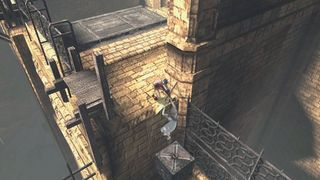
For all its majesty, however, and talk of French artists and plausible repetition, it’s Ueda’s concern for gameplay, not merely architecture, that informs the castle’s layout. He considers each challenge a level, and plotted the player’s complex route through the castle based on the difficulty each presented, the team carefully ensuring players’ experiences were balanced and consistent.
Over a decade after wedging that last virtual stone block in place, does Ueda wish he’d done anything differently? “I really do like the overall layout of the castle,” he says confidently. “It was not possible at the time, but I would have loved to take the detail of the formative design and the background animation a lot further, and create them with a lot more detail.”
In a very real sense, he will. Team Ico’s upcoming game The Last Guardian – also set in a fortress of mysterious origin, also featuring a boy and his companion – appears to be, at the very least, a spiritual successor to Ico. But until then we’ll happily make do with the sights, sounds and phantom sensations of Ico. It’s not often you get to visit the remains of a castle designed by a king.
Read more from Edge here. Or take advantage of our subscription offers for print and digital editions.
Edge magazine was launched in 1993 with a mission to dig deep into the inner workings of the international videogame industry, quickly building a reputation for next-level analysis, features, interviews and reviews that holds fast nearly 30 years on.
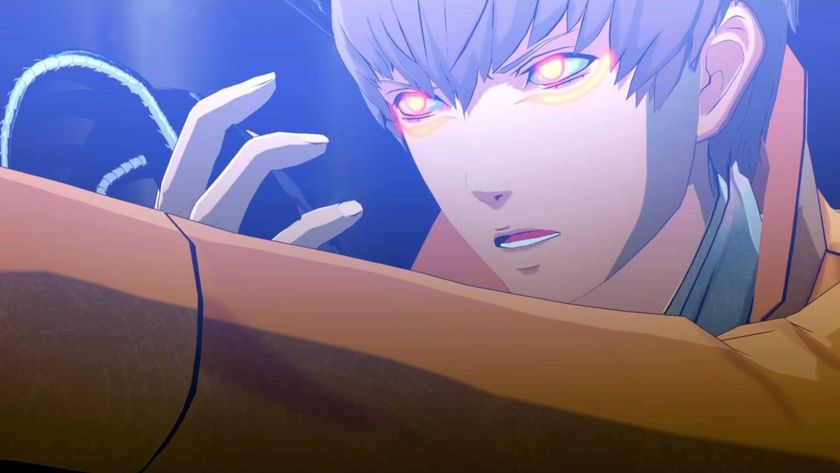
Metaphor: ReFantazio had to dial back an early battle system inspired by a notoriously brutal 2003 JRPG, because 20 years later, players found it "irrational" and "just not fun"
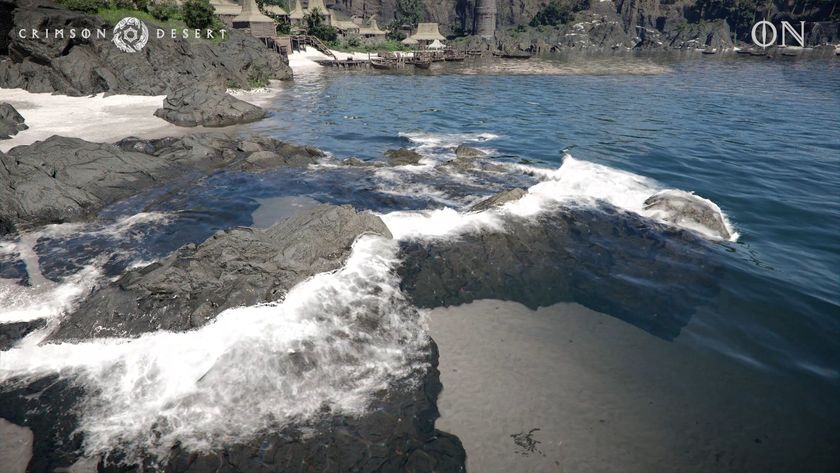
At a ridiculously detailed showcase of the open-world engine behind the RPG Crimson Desert, I asked a ridiculously detailed question about water and all hell broke loose

